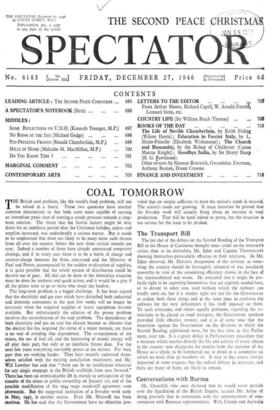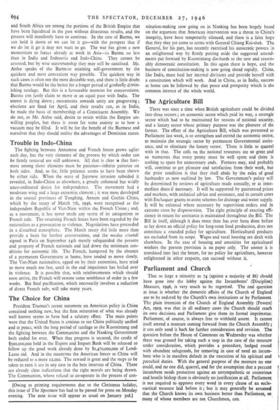Conversations with Burma
Mr. Churchill, who once declared that he would never preside over the liquidation of the British Empire, accuses Mr. Attlee of doing precisely that in connection with the announcement of con versations with Burmese representatives. Well, Canada and Australia
and South Africa are among the portions of the British Empire that have been liquidated in the past without disastrous results, and the process will manifestly have to continue. In the case of Burma, we can hold it down or we can let it go—with the prospect that if we do let it go it may not want to go. The war has given a new momentum to forces already at work in Asia—in Burma no less than in India and Indonesia and Indo-China. They cannot be arrested, but by wise statesmanship they may still be canalised. Mr. Attlee speaks of the Burmese attaining self-government by the quickest and most convenient way possible. The quickest way in such cases is often not the most desirable way, and there is little doubt that Burma would be the better for a longer period of gradually dimin- ishing tutelage. But this is a favourable moment for conyersations. Burma can justly claim to move at an equal pace with India. The unrest is dying down ; movements towards unity are progressing ; elections are fixed for April, and their results can, as in India, be made the basis of membership of a Constituent Assembly. We do not, as Mr. Attlee said, desire to retain within the Empire un- willing peoples, but there is room for some anxiety as to how a vacuum may be filled. It will be for the benefit of the Burmese and ourselves that they should realise the advantages of Dominion status.































 Previous page
Previous page